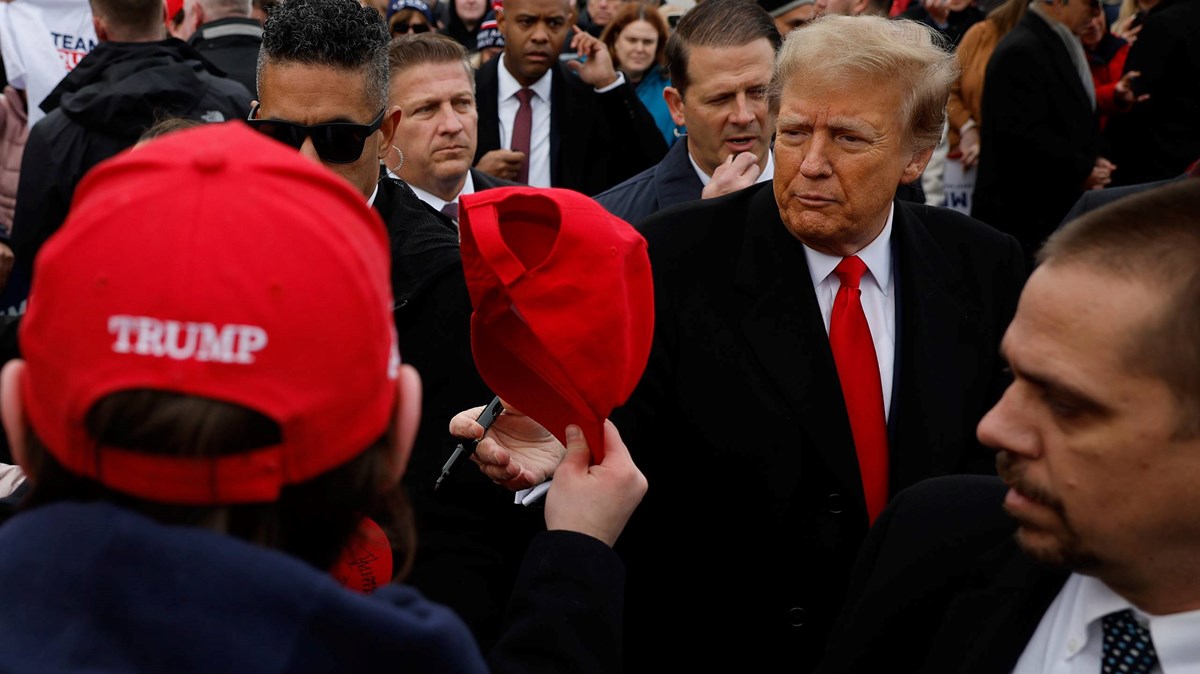After former president Donald Trump bested former South Carolina governor Nikki Haley in New Hampshire on Tuesday, the GOP primary outcome that many have expected all along may soon be here.
“This race consolidated faster than any race I can remember,” Dan Darling, director of the Southwestern Baptist Theological Seminary’s Land Center for Cultural Engagement, told Christianity Today. “It’s feeling a little bit like an incumbent candidacy.”
Haley outlasted a large field of presidential hopefuls, but after a second-place finish in the Granite State, her underdog campaign may soon run out of road, political analysts say.
“New Hampshire has a much more moderate and much less religious electorate than South Carolina, and she still could not win,” said Kyle Kondik, an elections analyst with the University of Virginia Center for Politics. “The bottom line is that I think she needed to do better in New Hampshire to demonstrate wider appeal among the base Republican electorate.”
In New Hampshire, she also performed well with college graduates and self-identifying moderate and independent voters. But nearly 9 in 10 of New Hampshire voters who considered themselves “very conservative” supported Trump, The Washington Post’s exit polling found. And white evangelical Christians—about 20 percent of voters in the contest—went for Trump by 70 percent.
Trump won support from a strong majority of white evangelical voters in the 2016 and 2020 presidential elections, but his popularity also heightened ideological divisions within churches.
“Christians should be preparing now for a really divisive and contentious campaign season,” Daniel Bennett, a political science professor at John Brown University, told CT.
Darling sees more fatigue among the faithful when it comes to politics. In the year ahead, he anticipates that there will be less back-and-forth from Christians arguing over support for Trump, and more conversations “about how to conduct ourselves and do this well and love our fellow Christians, even if we disagree on how to go forward and the election.”
After 2020, a solid minority of evangelicals (43%) said they believed evangelicals’ embrace of Trump had hurt the church’s credibility and a third said it made it harder to witness to others.
“I am deeply concerned about what the re-election of Trump would appear to some to vindicate and justify,” Michael Wear, a former faith adviser to the Obama administration and president of the Center for Christianity and Public Life, told CT. “He is running for the highest office in the land, and if he wins, it will have significant consequences for our nation and for the world.”
Bennett also thinks that most evangelicals have made up their mind about Trump: “At this point, you’re either with him or you’re not. I doubt we’ll see a lot of faith leaders ‘fall in line’ if he wraps up the nomination; they may vote for him, but I wouldn’t expect there to be a deluge of enthusiasm from currently quiet corners of American evangelicalism.”
Even with their appeals to faith, the rest of the Republican field struggled to outperform the former president. Former vice president Mike Pence and South Carolina Sen. Tim Scott quoted Bible verses and adopted a pastoral tone—both failed to gain steam. Florida Gov. Ron DeSantis sought to run to Trump’s right—he fizzled after his narrow second place in Iowa. Former New Jersey governor Chris Christie made a moral case against Trump—he didn’t make it till Iowa.
The Methodist Haley, meanwhile, often remained tepid in her criticism of Trump, in hopes of not alienating supporters of her rival. So far, the strategy has kept her in the race, but not enough to threaten Trump’s front-runner status.
“This race is far from over,” Haley said Tuesday night, pledging to focus on South Carolina’s upcoming primary in February. “There are dozens of states left to go. And the next one is my sweet state of South Carolina.”
But Trump is projected to win there too. “Just a little note to Nikki,” he said Tuesday, “she’s not going to win.”
High name recognition and a loyal GOP base are qualities that have helped him in the primary, though some see Trump’s weakness with moderates and independent-leaning voters as a problem for his campaign in the general election.
“If you think of him as an incumbent, you have to be a little bit worried,” Darling said, noting that Trump polled only around 50 percent in Iowa. “In a general election, Republicans are going to need every Republican and then some. You’re going to need all the Republican votes from all sides of the party. Plus, you’re gonna need some independents.”
Still, with Joe Biden’s approval ratings lagging, several recent polls put Trump ahead of him in the general election.
Wear hopes Christians can engage in this political cycle in ways that are countercultural. His latest book, The Spirit of Our Politics, urges Christians to prioritize spiritual growth over political gains.
“We must address the choices immediately in front of us, but we also need to say things and act in ways that are true and lasting beyond a presidential election cycle,” he said. “We can actively refuse to follow the logic of our toxic politics, which runs on fear, anger and insecurity, but instead contribute what we have to offer with joyful confidence.”




























![[Video] More – Aghogho » GospelHotspot](https://gospelhotspot.net/wp-content/uploads/2024/04/More-Aghogho.jpeg)
















